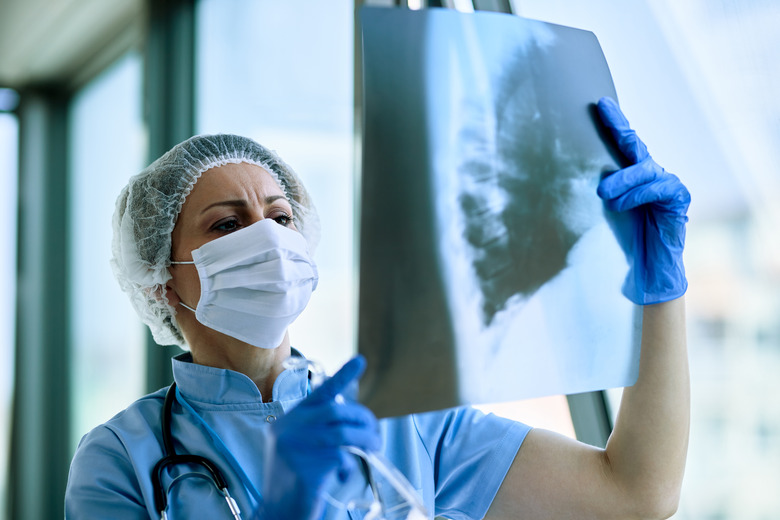Functions Of The Human Circulatory System
The human circulatory or cardiovascular system distributes substances necessary for life throughout the body. Starting at the heart, blood is pumped to the lungs where it picks up oxygen and releases carbon dioxide. Other blood fluids pick up nutrients from the digestive system, get cleansed in the kidneys and liver or receive hormones from the various glands scattered around the body.
When the circulatory system suffers damage, the blood system delivers cells and fluids to clog the leak and repair the cell walls. If disease-causing bacteria or viruses are detected, the circulatory system sends cells and antibodies to fight the intruders. The circulatory system parts act as a transport mechanism for the body, taking substances to where they are needed and removing waste.
TL;DR (Too Long; Didn't Read)
**TL;DR (Too Long; Didn't Read)**
The function of the circulatory system is related to the transportation of cells and materials throughout the body. The heart pumps blood containing blood cells, nutrients and fluids out to the body, and the veins bring back the blood along with waste material. This transportation process can be divided into the functions of supplying cells with oxygen, nutrients, hormones and immune system protection while removing carbon dioxide and metabolic waste products.
Transporting Oxygen is a Key function
Transporting Oxygen is a Key function
Although the circulatory system parts work together to carry out the overall transport function, activities moving certain cells and substances fulfill different specific functions. For example, blood cells are pumped from the right ventricle of the heart to the lungs where they absorb oxygen. The oxygenated blood cells then return to the heart and the heart's left ventricle pumps them out to the body's cells. The oxygen is used for cell respiration and to produce energy for cell growth.
The Transporting Back Waste Function
The Transporting Back Waste Function
Cell respiration consumes oxygen but also produces carbon dioxide. The same blood cells that deliver oxygen to the body's cells pick up the waste carbon dioxide. When they return to the heart and are pumped back out to the lungs, they release the carbon dioxide at the same time as they pick up oxygen.
In addition to transporting back carbon dioxide, the blood picks up other waste produced by the metabolic process in cells. For example, uric acid is produced by cells and released into the blood. The blood circulates back to the kidneys where the uric acid is removed and expelled from the body as urine.
The Blood System Transports Nutrients, Water and Hormones
The Blood System Transports Nutrients, Water and Hormones
In addition to oxygen, cells need nutrients such as sugars, water for staying hydrated and hormones to govern some of their cell processes. The blood system distributes these substances to cells as they are needed. For example, blood absorbs sugars and other nutrients from the digestive system and delivers them to the cells that need them. Water for cells is also absorbed from the digestive system. Glands in various parts of the body produce specific hormones that help with the corresponding cell functions. For example, the pancreas produces insulin, which is needed by cells for their use of sugar. The circulatory system works together to make sure the required substances are picked up at the source and are delivered to the appropriate destination.
The Immunity and Repair Function
The Immunity and Repair Function
The cardiovascular system contains cells and substances that fight foreign cells and repair cell damage. White blood cells can identify hostile intruders and neutralize them. Antibodies help fight bacteria and viruses. Platelets in the blood help clog holes in the blood vessels and the substances in the blood help new cells grow to repair damaged tissue. As with the other functions, the main purpose of the circulatory system is to move cells and materials from where they are produced or made available to where they are needed.
References
Cite This Article
MLA
Markgraf, Bert. "Functions Of The Human Circulatory System" sciencing.com, https://www.sciencing.com/functions-human-circulatory-system-5379712/. 20 August 2018.
APA
Markgraf, Bert. (2018, August 20). Functions Of The Human Circulatory System. sciencing.com. Retrieved from https://www.sciencing.com/functions-human-circulatory-system-5379712/
Chicago
Markgraf, Bert. Functions Of The Human Circulatory System last modified March 24, 2022. https://www.sciencing.com/functions-human-circulatory-system-5379712/
